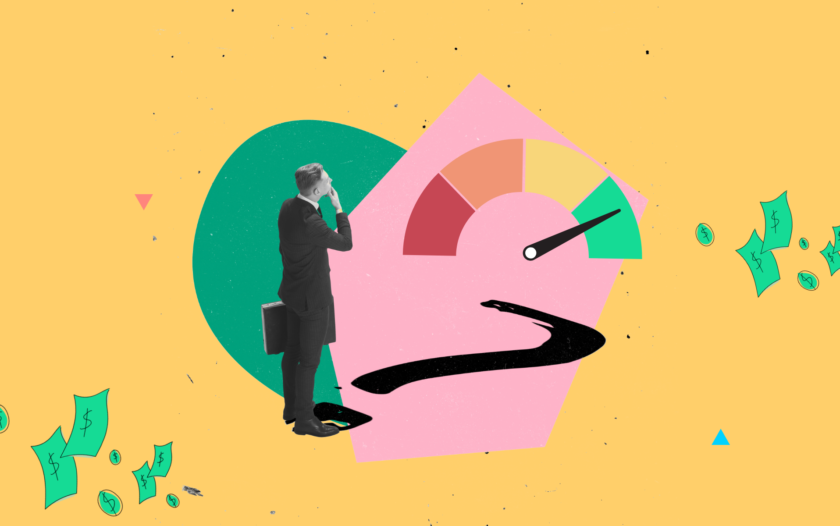What is Delinquency on Credit Report and How to Remove It?
About Trevor
Trevor Mahoney is a financial services writer and content creator based out of Los Angeles, California. He holds a Bachelors of Science in Finance from Santa Clara University. In his free time, he enjoys hiking and lounging on the beach.
Read full bio
At a Glance
As a borrower, the words delinquency are something you never want to hear in reference to your own debt. With that said, delinquency on credit report outputs is seen commonly and isn’t the end of the world so long as it is handled promptly. By managing any delinquent accounts you may have outstanding, you can get your credit score back on track faster.
In this article, you’ll learn:
What is a delinquency on your credit report?
For those unfamiliar with the term, delinquencies on credit reports simply refer to late payments on accounts. However, serious delinquency on credit report outputs is a payment that is so late it has actually been reported to the credit bureaus. Small delinquencies may not be reported to the bureaus so long as they are handled quickly in the delinquency timeline, meaning they may not show up on your credit report.
Stages of credit delinquency
Delinquency is not a one-stage issue that affects borrowers. Generally, there are three stages to delinquency with an account. The first of these three stages is a late payment that is 0-60 days past due. During this stage, the lender will likely let you know the payment is late and will charge a late fee. When 30 days have passed, the time of one billing cycle, the lender will most likely report the payment as delinquent to the credit bureaus at which point it will appear on your report.
For the period from 60-90 days past due, the creditor will start taking action to recoup their money by sending notices via email and paper. They will also add more late fees and the report to the credit bureaus will change to say it is 60 days delinquent. Finally, the third stage is when an account is delinquent for 90-120 days. At this point, the process of closing the account may occur and the debt will likely be sold to a collections agency.
As a bonus, once 180 days have passed since the payment was due it will likely officially be sent off to the debt collector and the account cannot be returned to good standing.
Can you remove delinquency from credit reports?
Delinquent accounts will stay on your credit report for as long as seven years and, considering payment history is the largest factor in credit calculation, this can be devastating to your credit score. If you are looking for how to dispute a delinquency on credit reports, contact the bureaus and inform them that the delinquent account on the credit report is in good standing.
If the account was actually delinquent, you need to make your payments to bring the account back into good standing before contacting the bureaus to have the delinquency removed. You will also likely need to provide a strong reason for why the account went delinquent. Once a delinquent balance has been on your report for two years, it cannot be removed.
How can you get out of delinquency?
The best way to get out of delinquency is to pay your accounts so that they return to good standing. Pay any late fees you were charged and pay the lender exactly what they are owed plus any interest. You may remain delinquent on a credit report, but you can contact the bureaus and ask them to remove the delinquency if you have a solid reason for why it occurred.
Does a delinquency affect your credit score?
A delinquency to your account can affect your credit score by around 100 points almost immediately considering that it affects payment history. Payment history is worth 35% of your total credit score calculation which is why the negative impact to a person’s credit score is so high when an account goes delinquent.
How can you rebuild credit after a delinquency?
Rebuilding your credit score after a 100-point drop will be an arduous process, but it is possible so long as the delinquency was a one-time event due to a lapse in judgment or circumstances beyond your control. To start rebuilding your credit, ensure all of your other accounts are current and nothing is due. Take out a secured credit account or even a credit-builder loan if necessary to help build your score back up, or perhaps sign on as an authorized to a loved one’s credit card if they allow it.
FAQs
Delinquent credit history will stay on a person’s credit report for seven years. If you are unable to learn how to fix delinquency on a credit report within two years, it will stay on your credit report for the remaining five years.
In looking at how long a delinquency stays on your credit report, many people wonder if paying the accounts will help this and improve your credit score. The damage that occurred from the account going delinquent will already have happened, but making complete payments in the future will slowly start to improve your score so long as the account is no longer delinquent.
Defaulting on debt is always worse than delinquency due to the negative impact that occurs to a person’s credit score. A default will make borrowing money in the future extremely difficult. However, in looking at what does delinquent mean on a credit report the answer is simply a late payment, it’s far better to have a delinquency than default.
When considering what is delinquency on a credit report, many people wonder about the consequences of delinquency. The primary consequences are a major drop in your credit score and difficulty borrowing funds in the future. Learn how to check delinquency on credit reports to ensure none of your accounts are facing this issue.









